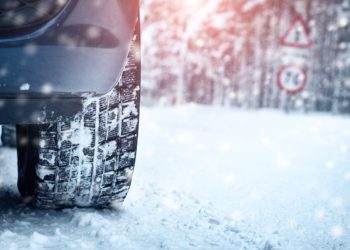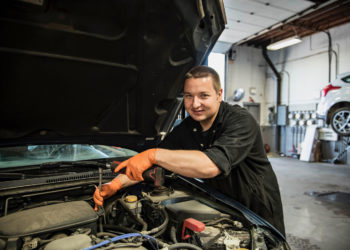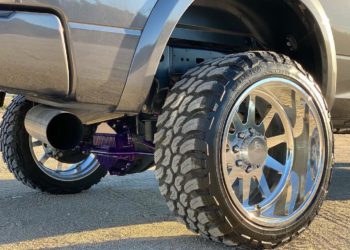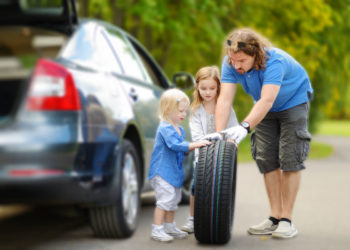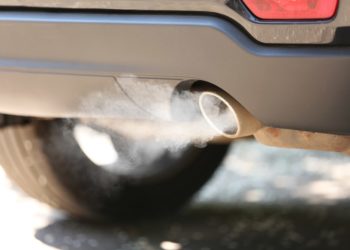The moment is now: you have been running late to work because you were so rushed this morning. You rush to your car, grab your keys, and buckle up. Click, click, click. And then nothing. The car won’t turn on.
Even if your goal is to be a DIY mechanic, it’s still a good idea to have some information about your car to help your mechanic better understand your needs. It is a great help to my clients to describe their engine problems so that we can prepare and understand the severity of the problem.
While I appreciate clients trying to mimic the sounds of their cars (for my entertainment purposes), there are many things that can be lost in translation.
This guide is designed to help you understand common engine problems and noises. We’ll start with the most common, which is when your car doesn’t start or makes a clicking sound.
One Single Click Versus Rapid Clicking
A click is usually an indication of an electrical problem. There are many parts to your engine that could be causing the electrical problem.
Car owners often identify two types of clicks. One click with no engine turnover and one click with rapid clicking. Although it is not easy to diagnose from noise alone, it can help us identify the problem and its potential severity.
Car makes a series of rapid clicks
Are you hearing your car make rapid clicks when you turn the key?
This is a problem that can be easily fixed. A clicking sound is usually an indication that your starter motor doesn’t have enough current to engage. This means your solenoid is trying but failing to make the connection. A bad battery, bad connection to the battery, or a bad alternator not properly charging your battery could cause this lack of electricity. Your battery or posts may need to be cleaned.
The Single Click That Gets You Car Running When You Want To Start
Is your car making a loud click when it attempts to start?
Some mechanics will immediately suspect that your starter engine is the problem, especially if you hear a single click. There is still the possibility that your problem could be a drained, dirty or corroded battery. This could be indicated by slow clicks, such as the one below.
Even if your vehicle’s other battery features seem to be fully charged, this could still be true. Most vehicles need at least 12 volts for starting, but your radio and interior lights will work fine with less.
How to start in both situations
Unregardless how loud or fast the engine clicks, it could be traced to one of many malfunctioning parts. My rule of thumb is to start with the simplest and most affordable option first, and then gradually move up the ladder.
Start with your battery.
Here’s how you can check if your battery is the problem.
a.) Do a visual inspection of the battery. Make sure your battery and pst have no major corrosion.
b.) Next, clean your battery terminal connectors. If they are dirty or gunged up it is likely your starter is not able to connect to the battery. These connections should be cleaned carefully. Make sure your car is not running and disconnect the clamps. Next, use a wire brush or an old toothbrush to clean them. You can also use baking soda water to clean a toothbrush if there is a lot of grime. After cleaning the terminals, dry them with a towel.
c.) If the connectors, posts and battery appear clean and functional, it could be a dead one. You don’t need any special equipment, such as a multimeter or battery load tester to test your battery. The easiest way to find out if your battery will jump start is to see if it does.
To safely jumpstart your car, you can follow our step-by-step guide.
Last but not the least, check your cabling.
Next, you need to look at your starter cables. Three cables will be connected to most starters: two from the starter (to the solenoid, starter itself), and one from ignition to solenoid. You should do the same thing as with your battery. Check for fraying and corrosion along the cable lines, and clean the ports.
What if not my battery?
After you’ve completed your cabling and battery check, it becomes more difficult to diagnose the problem. It takes a variety of tools and knowledge to diagnose a specific problem in your alternator or starter. I recommend that you contact your trusted auto technician if you’re not a skilled home-mechanic.



